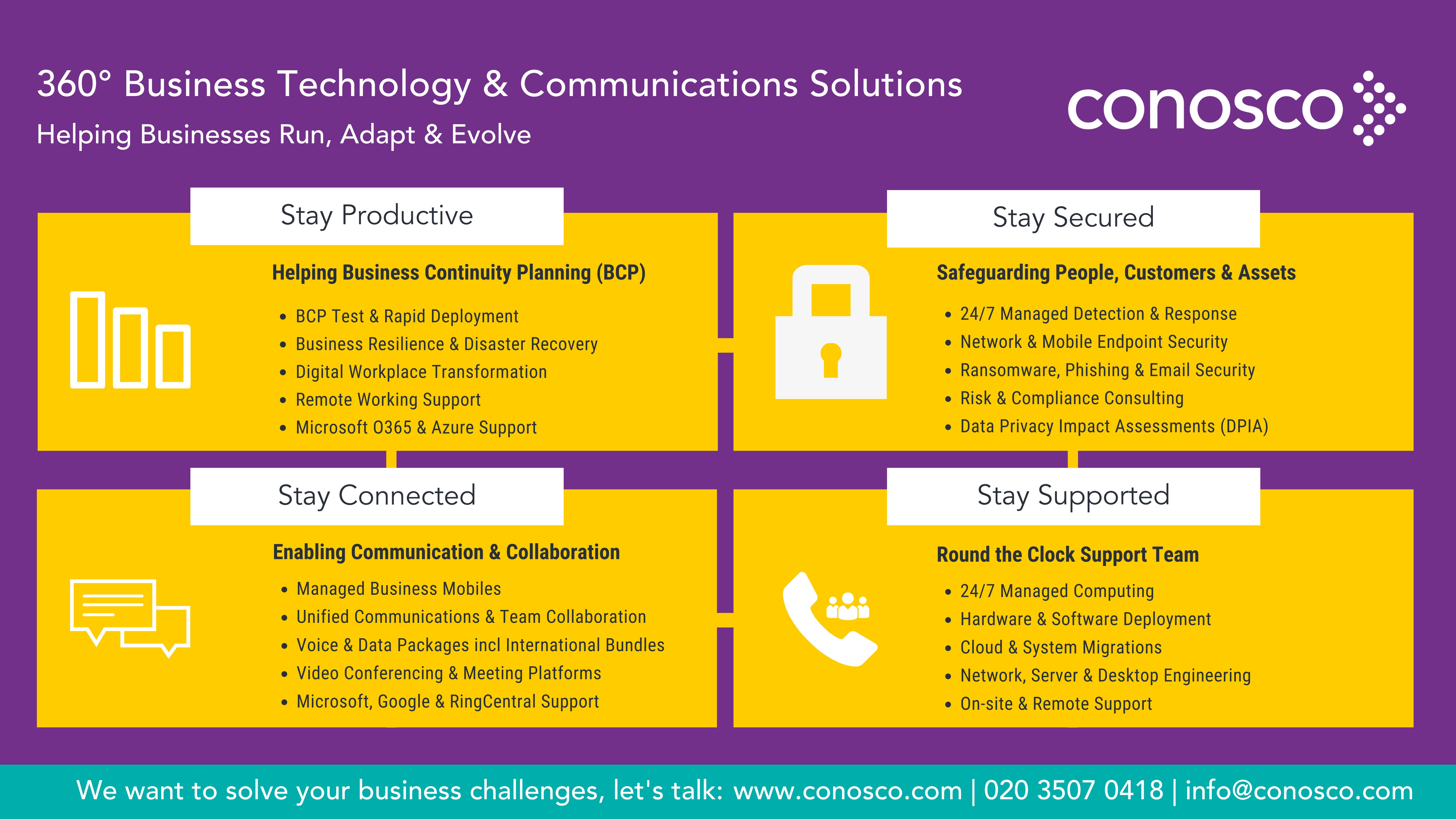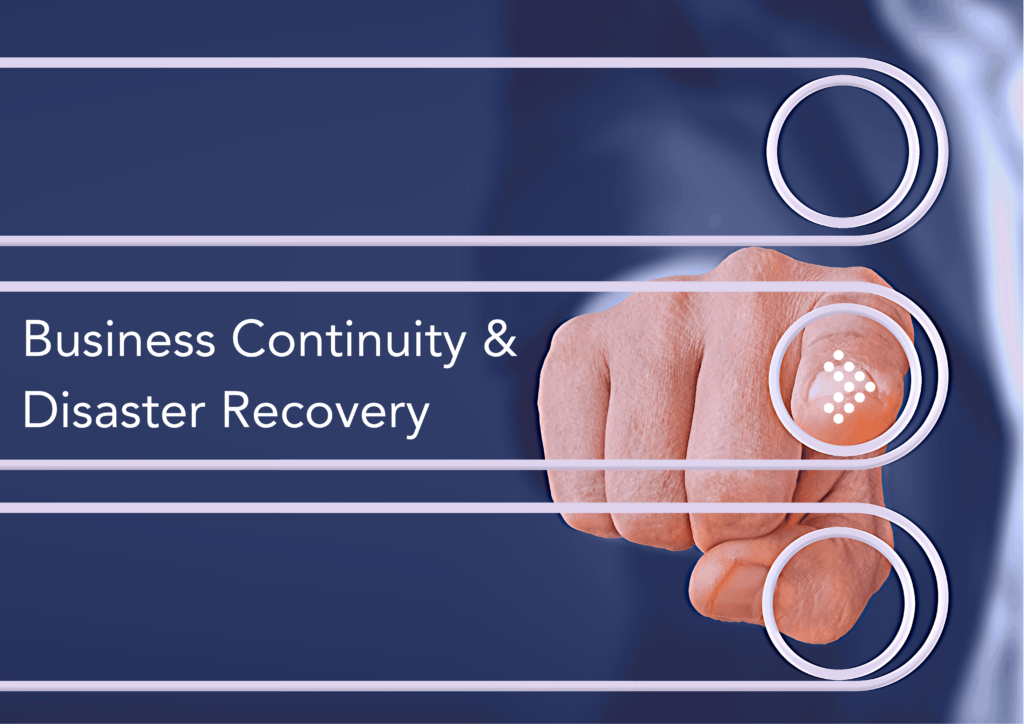Coronavirus (Covid-19) and Business Continuity Planning
by Conosco on Mar 5, 2020

The current situation as it relates to the ongoing Coronavirus (Covid-19) outbreak is continually changing, although it is becoming ever more clear that the potential implications will be felt for businesses of all sizes.
Possible implications and predictions
Current worst-case predictions by the Government and Health Services are that up to a fifth of the UK workforce could be infected by the virus at its peak, which is likely to still be weeks in the future. If infection rates continue to rise, the likelihood of further transport shutdowns and even stricter self-isolation requirements affecting your staff’s ability to work from the office is quite high.
What could this mean for your business? Would you still be able to operate with 20% of your staff off sick, and the rest working from home? How will this affect your supply chain, and your clients? While some of these questions are difficult to answer due to the fluid nature of the outbreak, it is clear now that the way we work will be very different in the coming weeks, and your organisation should still have planned its own response to disaster-like situations, of which this is certainly one.
Having a large portion of your staff unable to work for a week or more could cause severe issues for your organisation if not properly planned for. Additionally, your organisation will most likely not be able to sustainably operate at the same levels with a remote workforce for the months to come, unless you plan accordingly. Even now it is not too late to take stock and plan for the coming months.
Helpful guidelines and points to consider for Business Continuity Planning:
- What percentage of your staff can reliably work from home?
- How effective would they be, or how much of an impact on your business operations would it have?
- Have you considered how you will maintain the security of your information with staff working from home and accessing systems in different ways?
- Have you got a plan in place on how to handle disaster situations such as this?
- How will you communicate your plan to staff, so that they know what to do and what is expected of them?
- How will you communicate to your clients if you are expecting a decrease in your ability to service them?
- How much of an impact will decreased supplier ability (including couriers and deliveries) have on your business?
- Are you prepared to support your staff through a disaster situation, do you know what you have to do by law as well as what you should do?
It is not too late to review your businesses disaster recovery/continuity plan, or even to create one if you don’t already have one, and test it for sustainability in the medium to long run. It is vital for any business to have considered situations like the one we are currently facing, and to plan accordingly. Test this plan as best you can, for example, by simulating possible outcomes in the coming months and implementing lessons learned, to better steer your business to a successful outcome.
Make sure you document your plan and communicate it regularly to staff, and ensure that it includes information about who to contact in a disaster and when, both internal to the business and externally. This could include press/social media/client communications if your business is likely to be affected by media reports.
At Conosco we regularly test our detailed disaster recovery plans as part of our ongoing secure operational best practices and have thoroughly tested our remote working capabilities in the run-up to this outbreak, ensuring that we can continue to effectively and securely support our clients even in the most challenging of situations.
Conosco can help with your current Business Challenges and deploy remote working support for you teams:




Hylton Stewart, Head of Cyber Security, Conosco
Email: csd@conosco.com | LinkedIn: @HyltonStewart
Reach out to Conosco if you would like guidance or assistance in assuring that your organisation can work remotely if needed, our experts can guide you through creating and testing your business continuity plan as well as assisting you in preparing for remote working.
You May Also Like
These Related Stories

Business Continuity and Disaster Recovery Solutions for Businesses (Covid-19)
Conosco provides effective Business Continuity and Disaster Recovery (BCDR) management solutions to industries across Re …

Conosco receives World-Leading Data Security Certification
Conosco were proudly presented with our ISO 27001:2013 certification by business standards company, BSI at a special cer …

Helping SMEs maximise their potential with Managed Mobile Service
Mobile technology is the fastest growing technology of all time. With the power of connectivity, Mobile is empowering SM …
